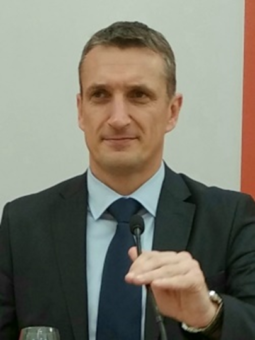
What should Serbia do to reduce environmental pollution, preserve biodiversity and adequately respond to the challenges of climate change? Will the legal framework be realigned with the Green Agenda? We looked for answers to these questions in a conversation with Radovan Nikčević, who has been dealing with energy and sustainable development topics in the Western Balkan countries for more than two decades and was recently appointed manager of the Green Agenda project in Serbia which is implemented under the UNDP’s auspices.
EP: You were involved in the preparation of the Sofia Declaration by which the Western Balkan countries undertook to work together with the EU towards achieving climate neutrality in Europe by 2050. Is there any progress made?
Radovan Nikčević: Seen as a whole, the region still has room to change its attitude towards the environment at full capacity and to start fulfilling the obligations it undertook when signing the Green Agenda Declaration in Sofia in November 2020. There are certain initiatives and projects in place, but the relevant processes must be expedited, and for these countries to be more efficient and effective. There is often a lack of determination and solutions at the regional level. To a large extent, there is also a lack of political will to change the paradigm of our treatment of resources, economic activities and the environment in general. Perhaps we can look for reasons in the pandemic and war conflicts that significantly shook the global economy and disrupted priorities, but we should also look into the lack of regional support. This should certainly not be an excuse for the absence of a more decisive reaction and the creation of a long-term vision with a clear goal. That goal is primarily climate neutrality, but also changing how we perform economic activities, travel, commute to work and meet our daily needs. The Sofia Declaration is a complex and demanding document, and fulfilling its obligations will require extremely large investments and financial strains. In fact, it is best to say that every dinar invested in future development will actually be a dinar for the green transition. Also, when we invest in the future, we will have to take into account and ensure the principle of investment sustainability. All in all, neither the environmental picture nor the perspectives regarding that topic have changed significantly over the past two years.
IN FOCUS:
- SERBIA ON THE PATH OF GREEN TRANSITION
- HOW TO BECOME A PROSUMER?
- A BETTER LEGAL FRAMEWORK AND INCENTIVE MEASURES ARE A CONDITION FOR THE DEVELOPMENT OF THE RECYCLING INDUSTRY
EP: An action plan was adopted last year, which stipulates measures and obligations for all countries in the region so they can align with the European Green Plan. How consistent are the regional countries in fulfilling these obligations?

Radovan Nikčević: The preparation of the action plan itself was a long-term and demanding process that included, first of all, governments from the region, but also various international organizations active in the segments covered by the Green Agenda, and to a certain extent, civil society. Of course, all of this was done with great support and close cooperation with the European Commission. The region is not alone in this whole system, as there is a network of organizations that provide support to the entire process of a comprehensive transformation of society. Of course, this process and dynamics largely depend on the readiness of countries to implement reforms through the development of a strategic and legal framework, but also through applying concrete measures. This is precisely where there is ample room to expedite the transition and act more decisively in terms of fulfilling the obligations stipulated in the Action Plan. However, what transpired was that experiences can be exchanged through regional approaches and cooperation, but concrete problems cannot be solved. Therefore, we must turn to ourselves and see what each of us can do.
EP: You have recently stated that the regional countries must harmonize the environmental and legal frameworks with the Green Plan. What can you tell us about Serbia’s efforts in this direction and whether the energy crisis has affected the alignment with the Green Plan?
Radovan Nikčević: Harmonizing strategic and legal frameworks is not only an obligation under the Green Agenda but also part of the accession process. The European Green Plan confirmed this and stipulated another set of both strategic goals and regulations that must be transposed into the national legal framework. In previous years, Serbia passed a large number of laws relating to environmental protection and about 200 by-laws. However, with new, increased climate ambitions (Fit for 55), and a set of regulations in other sectors such as energy, transport and agriculture, it will be necessary to update and further harmonize the legal framework. This is a continuous process. The Environmental Protection Strategy — Green Agenda, which is expected to be completed in September 2023, should provide clear guidelines for the further development of both the strategic and legal framework. On top of the activities on creating an appropriate environment for the green transition, the fact remains that the economic sector, local self-governments and even individuals are interested in the implementation of concrete measures and innovative solutions that contribute to decarbonization, stimulate circular business models or have other positive effects on the environment. Finally, as far as the crisis and its impact on the acceleration of the alignment with the Green Plan are concerned, the effects are still not visible. A period of uncertainty is ahead of us during which we are going to realize where we stand and whether there are renewable alternatives to natural gas, on which a large part of European industry rests, or whether, as it is already happening in Europe, we will have to reach for long-forgotten coal reserves, which, of course, can have unfathomable consequences from an environmental point of view.
Prepared by: Milica Marković
Read the story in the new issue of the Energy portal Magazine Waste Management



